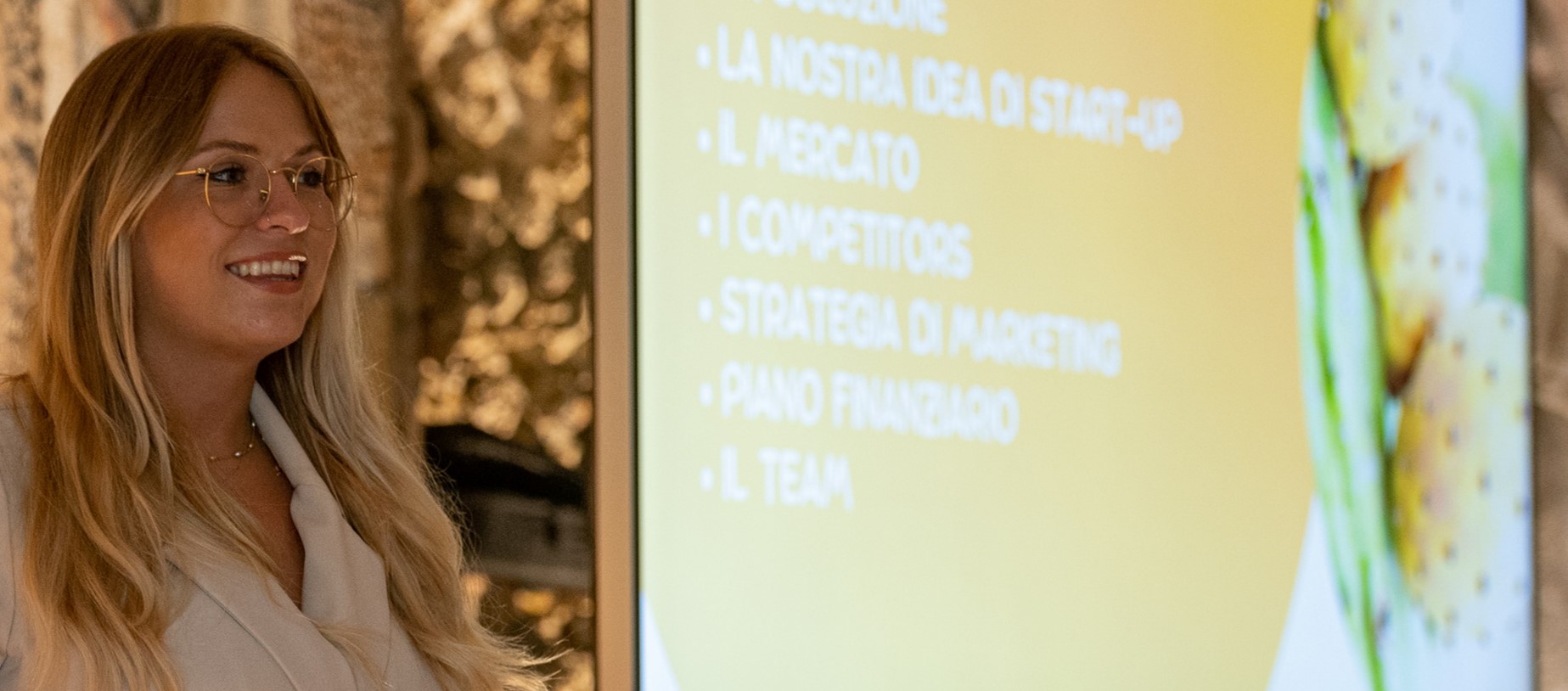
Professional Master in Business Management
The importance of knowing how to plan
11 August 2022
One of the strengths of the Master’s in Business Management at BBS is the opportunity to create a business plan for a hypothetical start-up. A challenge to be tackled as a team and which each year sees the awarding of the best of the projects presented. We asked Barbara Lorenzini, Adjunct Professor and lecturer in Marketing at Bologna Business School, and Claudio Venezia, CEO, and Founder of Squat & Basilico and Founder of Officina Startup, to elaborate on this initiative.
How did you propose this group challenge to participants – who, we remind you, will also carry out individual final projects – to find a successful business plan? And what, in your opinion, are the characteristics that made it a winning idea?
The Master’s program in Business Management has always been characterized by the fact that it offers participants the opportunity to carry out a significant number of projects throughout its duration, in direct contact with companies chosen in line with the specialization track. Since this is a horizontal master’s course that aims to allow participants to get to know the reality of business at 360 degrees, it has been decided to include this additional project of a new business idea. Students have the opportunity to deal with the reality of all the theoretical concepts learned in the courses, experiencing first-hand (within their groups) the experience of running their own business. We believe this is a winning idea because the students can immerse themselves in the reality of managerial decisions related to all business functions, thus significantly strengthening the tools at their disposal for a successful future entry into the world of work.
What are the most significant or brilliant projects, e.g., for the level of innovation or the quality of thinking or design?
Green, life science, and sustainable mobility solutions are the most exciting projects this year. Current topics on the need to build circular economy models embedded in a broader sustainability project attracted the most interest from the students. The winning projects turned out to be those with elements of entrepreneurial concreteness, based on providing real solutions to market needs.
When discussing innovative ideas, the aspects of the actual possibility of realizing the projects, the so-called ‘grounding’, which requires feasibility studies and targeted research, are often overlooked. What advice would you give to a young person entering the competitive business arena in this regard?
We always make sure that students incorporate these elements into their projects. We invite and encourage them to set their job as real and not as mere study exercises. Therefore, each project is developed with a strong implementation perspective. In general, the advice is to start from the need to be met and to analyze the target market carefully. In this planning phase, it is crucial to not rely only on one’s intuitions but to validate them with the target audience constantly. The aim is to internalize a cyclical and iterative innovation process based on continuous learning capable of capturing market changes. In addition, after validating the first start-up phases, it will be crucial to set up a winning business model capable of guaranteeing the scalability and replicability of the entrepreneurial project.
Talking about this academic year’s projects, is there any approach, topic, or implementation method that particularly impressed you? What was the strong point of the winning project?
The winning project was the one with the most effective implementation and technological innovation applied to solving a real market problem. The U-bio project, realized by the track students in Life Science and MedTech, aims to solve personal and dermatological health problems through innovative probiotic formulations. The team’s commitment to finding a solution that would meet the market’s needs, creating a sustainable business model, and an effective go-to-market strategy allowed U-bio to excel in over 20 start-up projects.
We are convinced that in the coming years, the start-up and entrepreneurial planning project of the Master in Business Management will be an increasingly important part of the student’s education.
